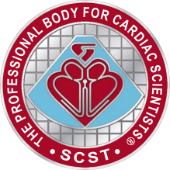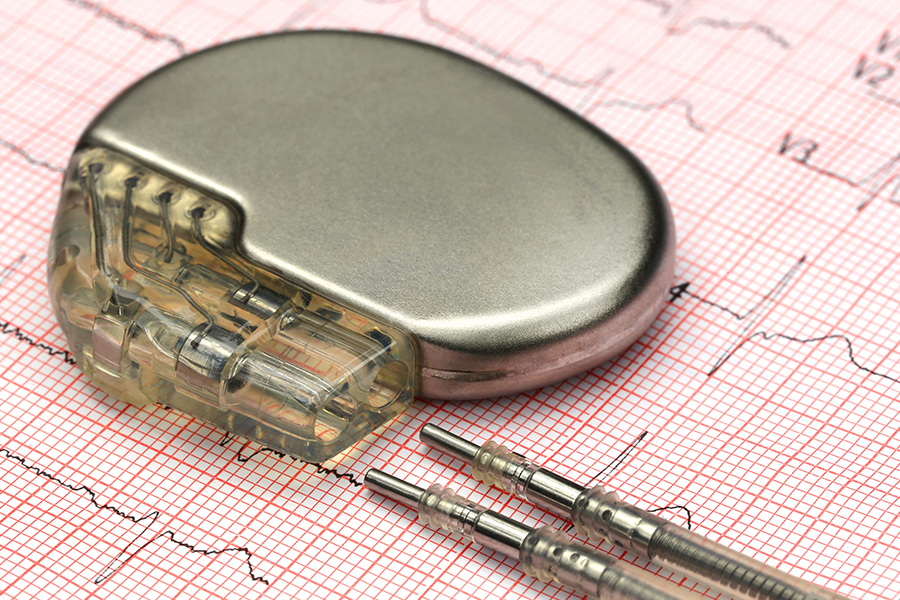Position statement regarding the deactivation of implantable cardioverter defibrillators (ICDs) during the COVID-19 pandemic. This statement follows the release of guidance from the British Heart Rhythm Society (BHRS) on this topic and aims to deliver practical advice on how this might be applied in the clinical setting.
The following statement is a consensus opinion by the Society for Cardiological Science and Technology (SCST) on the appropriate management of patients with Implantable Cardioverter Defibrillators (ICDs) requiring deactivation during the COVID-19 pandemic. This statement follows the release of guidance from the British Heart Rhythm Society (BHRS) on this topic and aims to deliver practical advice on how this might be applied in the clinical setting.
The decision to deactivate an ICD may be made when a patient enters into or is on an end of life care pathway. When a patient is nearing the end of life, unwarranted automated shock therapy may cause unnecessary discomfort and substantial distress to both the patient and their family. The decision-making process should be clearly documented including multi-disciplinary team (MDT) discussion and informed consent must be obtained before ICD deactivation is performed. Guidance is widely available to aid this process and individual Trust policy should dictate the specific processes to be followed.
It is encouraged that discussions about ICD deactivation are initiated as soon as appropriate when it becomes clear patients are near requiring end of life decisions. There may be circumstances where a patient’s condition may suddenly deteriorate, however, a formal documented process for the decision to deactivate an ICD must still be carried out including informed consent or following “best interest” rules of practice if appropriate. ICD deactivation is typically carried out by a suitably qualified Cardiac Physiologist or Clinical Scientist with the use of relevant ICD programming equipment.
The current COVID-19 situation poses particular challenges to the cardiac science workforce in regard to:
- The availability of device specialist staff to perform ICD deactivation both in hospital (permanent sites and field hospitals), in the community and in mortuaries.
- The risk of cross infection between staff and high-risk patients.
- The risk of contamination of programming equipment and the availability of enough of this equipment to allow for timely decontamination and re-availability.
- A higher than normal burden of requests for ICD deactivation in deceased patients by hospital mortuaries.
Although full device interrogation and deactivation by a Cardiac Physiologist is the preferred procedure, it may be appropriate in urgent situations to temporarily deactivate an ICD using a suitable high-powered magnet. Temporary magnet ICD deactivation may be performed by other Healthcare professionals if adequate training is given. Training should be readily accessible via an online platform while face-to-face training is not currently possible.
Departments should consider teams available to whom the procedure of temporary magnet deactivation could be delegated. This may include both in hospital and community palliative care or heart failure teams. Specific urgent ICD deactivation protocols and standard operating procedures (SOPs) should be developed for these circumstances. It may be appropriate to make specific equipment (magnets, protocols etc) available to community teams to enable timely deactivation of an ICD where necessary, including out of hours. A networked approach between Trusts with a rota system may be utilised to manage community ICD deactivation across local geographical areas.
Patients’ families are likely to require emotional support around the time of ICD deactivation, both those within the patient’s household but also family members who may be self-isolating away from the patient. As such, support should be made available, which may include a telephone line to the appropriate cardiac or palliative care team, or the provision of information regarding national helplines available for ICD patients and their families.
Departments may also consider temporary magnet deactivation of devices and possibly protocol-driven manual disconnection of ICD leads by appropriately trained Mortuary technicians where required and appropriate. Infection prevention and control procedures must be closely adhered to with regard to patient contact and equipment decontamination. Advice regarding appropriate personal protective equipment (PPE) and decontamination of equipment has been made available and is regularly updated by Public Health England.
As this is an evolving clinical situation, this guidance may be updated, and we suggest all members remain vigilant for updated guidance as it becomes available.
Current guidance and useful links:
British Heart Rhythm society statement “deactivation and removal of ICDs during covid pandemic
British Heart Foundation guidance relating to “ICD deactivation at the end of life: Principles and practice”
Public Health England “Coronavirus (Covid-19): personal protective equipment (PPE) hub


Recent Comments